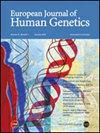Exploring individuals’ experiences with self-reported unmet need for genetic testing
IF 4.6
2区 生物学
Q2 BIOCHEMISTRY & MOLECULAR BIOLOGY
引用次数: 0
Abstract
In practice, healthcare systems and insurers determine that there is “need” for genetic testing when there is potential for clinical utility. However, it is not currently known how the public understands the need for genetic testing and if this aligns with clinical utility. We recruited participants in Canada through a survey distributed through a market research company (Leger Opinion Panel). Participants who self-reported the need for genetic testing were then purposively sampled to complete a semi-structured virtual interview. We used an interpretive description approach and reflexive thematic analysis. We completed 19 interviews and found that participants’ self-identified need for genetic testing was informed by their experiences with genetic information and the perceptions that genetic information is actionable (clinical utility) and has personal meaning (personal utility). Most participants would not be eligible for funded testing based on their personal and family history, however, they had unmet informational and psychological needs, indicating unmet need for genetic counseling. The public understanding of the need for genetic testing is complex and varied. Participants identified many benefits resulting from genetic testing which are not reflected in how need is operationalized in reimbursement decisions, however unmet expectations for testing contributed to medical distrust and dissatisfaction.

探索自我报告的未满足基因检测需求的个人经历。
在实践中,医疗保健系统和保险公司确定有“需要”基因检测时,有潜在的临床效用。然而,目前尚不清楚公众如何理解基因检测的必要性,以及这是否符合临床用途。我们通过市场研究公司(Leger Opinion Panel)的调查在加拿大招募了参与者。自我报告需要进行基因检测的参与者随后被有意抽样,以完成半结构化的虚拟访谈。我们使用了解释性描述方法和反身性主题分析。我们完成了19次访谈,发现参与者自我确定的基因检测需求是由他们对遗传信息的经验和对遗传信息是可操作的(临床效用)和具有个人意义(个人效用)的看法所决定的。根据他们的个人和家族史,大多数参与者不符合资助测试的条件,然而,他们有未满足的信息和心理需求,表明未满足的遗传咨询需求。公众对基因检测需求的理解是复杂而多样的。与会者确定了基因检测带来的许多好处,这些好处没有反映在如何在报销决定中实现需求上,然而,对检测的期望未得到满足导致了医疗不信任和不满。
本文章由计算机程序翻译,如有差异,请以英文原文为准。
求助全文
约1分钟内获得全文
求助全文
来源期刊

European Journal of Human Genetics
生物-生化与分子生物学
CiteScore
9.90
自引率
5.80%
发文量
216
审稿时长
2 months
期刊介绍:
The European Journal of Human Genetics is the official journal of the European Society of Human Genetics, publishing high-quality, original research papers, short reports and reviews in the rapidly expanding field of human genetics and genomics. It covers molecular, clinical and cytogenetics, interfacing between advanced biomedical research and the clinician, and bridging the great diversity of facilities, resources and viewpoints in the genetics community.
Key areas include:
-Monogenic and multifactorial disorders
-Development and malformation
-Hereditary cancer
-Medical Genomics
-Gene mapping and functional studies
-Genotype-phenotype correlations
-Genetic variation and genome diversity
-Statistical and computational genetics
-Bioinformatics
-Advances in diagnostics
-Therapy and prevention
-Animal models
-Genetic services
-Community genetics
 求助内容:
求助内容: 应助结果提醒方式:
应助结果提醒方式:


